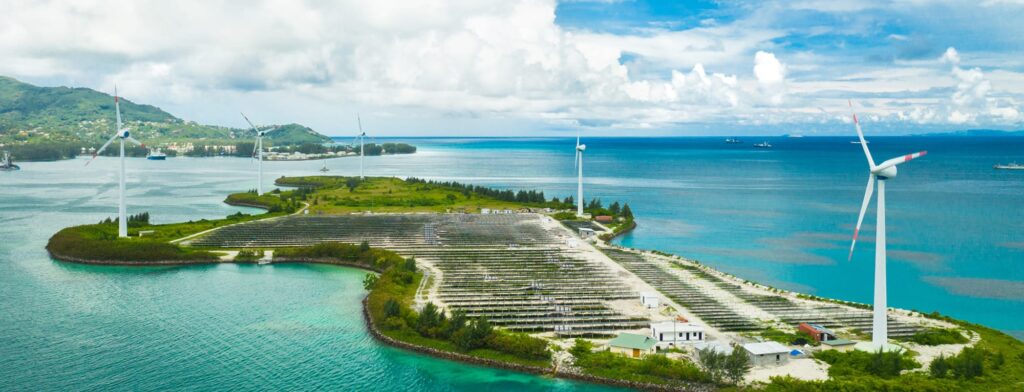In Summary
- North Africa has 5 countries on this list showing how urban planning and strategic international partnerships have resulted in a progressive gain in its infrastructure.
- Smaller nations like Cabo Verde and Botswana are surprisingly progressing better than other countries with large populations and resources.
- Geography plays a key role in infrastructure development as most nations on the island or along the Mediterranean coast appear to be at an advantage, ranking them higher on the list.
Deep Dive!!
Good Infrastructure is a very important part of a country. Most times, people look at things like roads, electricity, airports, and water supply to determine the state and level of the country. But beyond that, infrastructure also shows how well a country handles funds, resources, and supports its citizens. In Africa, some countries are utilizing all these well and even ranking high on a global scale. Governments are utilizing domestic innovations and securing foreign partnerships to develop large-scale renewable energy projects, urban development plans, investing in transportation, digital networks, and water systems.
This article ranks the countries based on their achievements through strategic execution and the capacity of the infrastructure built using a reliable development index.
10. Botswana

With its well-managed diamond resources and stable political system, Botswana has a steady and stable infrastructure development. Having a score of 43.12%, Botswana has invested more in its road networks and airport renovations, especially around Francistown and Gaborone. It recently developed its road links with Namibia and Zambia increasing regional connectivity. The country has developed its infrastructure largely with the aid of partnerships with Western technical professionals and government-led planning. Although it’s still behind in rail modernization, the country is still developing faster without many international partnerships.
9. Cabo Verde

Cabo Verde has an infrastructure development index score of 51.51%. The island prioritizes digital connectivity and renewable energy infrastructure over large-scale old constructions. In West Africa, Cabo Verde fibre optic networks and international airports are among the best. Through international partnerships with China, the country has secured some targeted investments, although it also relies heavily on tourism infrastructure funding and European Union aid. The number of Asians working in infrastructure is considerably low.
8. Algeria

With a score of 61.5%, Algeria’s years of working on its energy infrastructure, rail upgrades, and modern highways are now yielding good results with the East-West highway one of Africans longest. In Algiers, the metro system is currently expanding, and there is also a significant investment in the solar energy hub in the Sahara. There is also a strong international partnership in Asia. The Asian and Japanese workers are involved in the construction of major projects.
7. Morocco

Morocco has long had good Infrastructure development. With a score of 70.32%, the country is home to some of the best infrastructure projects in Africa, which include the first high-speed rail line in Africa, located between Tangier and Casablanca, developed with international partnerships. The port in Tangier is also among the most automated and busiest in the Mediterranean, and the massive renewable energy plants in Ouarzazate. Morocco works with Asian workers, notably China and Korea, to support some of its infrastructural projects.
6. Tunisia

With an index infrastructure development score of 74.18%, Tunisia’s good Infrastructure development is more embedded in its digital transformation and transport energy. Its road networks are well aligned, and in Tunis, several small projects have been initiated. Tunisia’s strong domestic technical education system and its long-term European Union partnerships help it limit heavy international labor. The Asian workers are limited with some only involved in industrial construction projects and renewable projects.
5. South Africa

South Africa’s score of 82.54% shows its dominance in good infrastructure despite facing economic pressures. The country’s energy grids, digital infrastructure, and road networks remain among the best in Sub-Saharan Africa. It is home to Gautrain, the high-speed rail system linking Johannesburg to Pretoria. New progress has, however, slowed down with its current challenges in the ageing power plants and inconsistent maintenance. The Asians majorly function in the commercial sector funding or advisory roles rather than labor.
4. Mauritius

Mauritius’ score of 82.77% can be attributed to its strategic planning. The country invests more in solar infrastructure, expanding green buildings, and sustainable development. The island is home to a high-performing transport system, like the light rail transit in Port Louis. Mauritius also attracts global investors and diaspora returnees, especially with its Smart City Scheme. The Asian partnerships have helped in major projects, especially in technology parks and port expansion.
3. Libya

Libya’s infrastructure progress may be surprising because of its years of political turmoil. With a score of 84.84% of the infrastructure development index, the country has revived most of its lost projects and initiated new ones with the help of international partnerships. The major progressive infrastructure developments are the hospital constructions, the renewable energy trials in the desert South, and urban road restorations. The Asian workers are moderate with mainly the Chinese and engineers completing earlier projects.
2. Egypt

For its size, Egypt’s 91.43% infrastructure development score is fascinating. The country is home to a second Suez Canal passage, functioning airports, rail systems, and developed cities. The country’s new administrative capital near Cairo is a major project with green energy systems and smart buildings. Egypt and China have a strong partnership with China being involved in most of the major projects through the Belt and Road initiative.
1. Seychelles

Seychelles tops the list of Africa’s most progressive infrastructure developments with an index score of 99.77%. Seychelles’ infrastructure, like roads, airports, seaports, and utility services, is not only efficient but is also built to withstand climate challenges. The small island nation is known for its tourism and fishing economy supporting its large investment in maritime infrastructure and renewable energy. Notably, Seychelles’ infrastructure development is mainly managed within the country with minimal international partnerships.
https://www.africanexponent.com/top-10-african-countries-with-the-most-progress-in-infrastructure-development/


